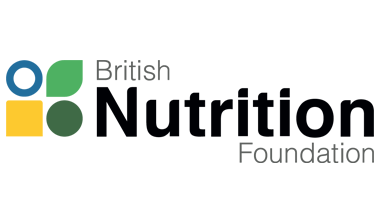Top Healthy Eating Tips For Teens
Healthy Diet / Family HealthWe aim to give people access to reliable science-based information to support anyone on their journey towards a healthy, sustainable diet. In this section you can find some top tips for eating healthily.
Teenage years are such an important time for growth and development, a healthy, varied diet is essential to ensure that they receive all the energy and nutrients they need to concentrate well at school and take part in sports and activities.
Here are some top tips for healthy eating:
- Do not skip breakfast. Some people think that not eating breakfast will help them to lose weight, but this meal is important for you. By the time you get up, it has been a long time since you last ate, so breakfast will boost energy levels. Here are some ideas:
- wholegrain toast with low-fat spread, a glass of orange juice and a low-fat yogurt;
- a bowl of cereal (low in fat, salt and sugars) with low-fat milk (including ‘green’ semi-skimmed milk, ‘orange’ 1% milk or ‘red’ skimmed milk), and an apple or banana
- porridge with chopped banana and a handful of blueberries or dried fruit
- boiled egg and toast and a fruit smoothie
- Eat three meals a day - breakfast, lunch and dinner. Make sure each meal includes at least one portion of fruit or vegetables (they contain lots of vitamins and minerals) and plenty of starchy foods such as whole wheat pasta, wholemeal bread or potatoes with their skins. Make sure that you eat at least five portions of fruit and vegetables every day (fresh, frozen, canned and dried all count). Examples of what counts as one portion include two or more small fruits (such as plums, satsumas); one piece of medium fruit (such as a banana or apple) and one heaped tablespoon of dried fruit.
- Boost your iron. It is important to eat plenty of foods containing iron, especially for girls who lose iron when they have their period. Iron is important for making red blood cells, which carry oxygen around the body. Almost 50% of teenage girls do not get enough iron in their diet. Sources of iron include:
- red meat and liver
- wholegrains (such as wholemeal bread)
- iron-fortified breakfast cereals
- dark green vegetables (such as kale, watercress)
- beans (such as red kidney beans, chickpeas)
- dried fruits (such as figs, raisins) and seeds (such as sesame seeds, pumpkin seeds)
- Build up your bones. As teenagers, you need high amounts of calcium because your bones are growing in size and density. The exact age at which the amount of bone tissue in the skeleton (known as bone mass) peaks is unclear, but it normally happens between the ages of 18-25 years, when bones reach their maximum strength and density. At least 90% of peak bone mass is acquired by the time you reach the end of your teenage years, which makes youth the best time to 'invest' in your bone health. The best sources of calcium include:
- dairy products such as milk, yogurt and cheese – try to choose low-fat versions if possible
- white and brown bread (as in the UK, calcium is added to flour by law)
- calcium-fortified dairy alternatives, such as those made from soya (particularly important if you are vegan or do not eat dairy products)
- calcium-fortified breakfast cereals
- dark green vegetables (such as kale, rocket and watercress)
- fish that is eaten with the bones (such as whitebait, canned sardines or canned salmon)
- Drink plenty of fluids, especially when taking part in exercise and physical activity, as the body loses water as sweat.
- Aim for about 6 to 8 glasses each day. The best sources of fluid include water and low-fat milk. Unsweetened fruit juice should be limited to a small 150ml glass a day. Try to avoid too many sugars-containing drinks and energy drinks, especially between meals as they could harm your teeth.
- Whilst alcohol is widely available, it is important to remember that it is illegal to buy alcohol if you are under 18 years. You may think that alcohol makes people feel happier, more confident and less stressed, but alcohol is a depressant drug so will make you feel depressed, clumsy and affect your speech. Drinking larger amounts can cause people to become aggressive and argumentative. Drinking alcohol can also leave you feeling hungover, which may include having a headache, feeling tired, thirsty and sick, and you may also feel depressed and have a low mood.
- Besides hangovers, alcohol can also have more serious effects on your health, including liver problems, reduced fertility, high blood pressure, increased risk of various cancers and heart attack. As alcohol contains calories, it can cause you to put on weight, and can leave your skin looking pale, grey and dehydrated. It’s also the main cause of accidents at home.
- Limit how much fast food you eat. These foods can be high in saturated fat, salt and/or sugars, which can be bad for our health when eaten in large amounts.
- Snack sensibly. If you are hungry between meals, go for healthier snack choices such as:
- fruit (fresh or dried)
- small handful of unsalted mixed nuts and/or seeds
- low-fat yogurts
- wholemeal pitta bread with lower-fat dips, for example reduced-fat houmous or salsa









































































